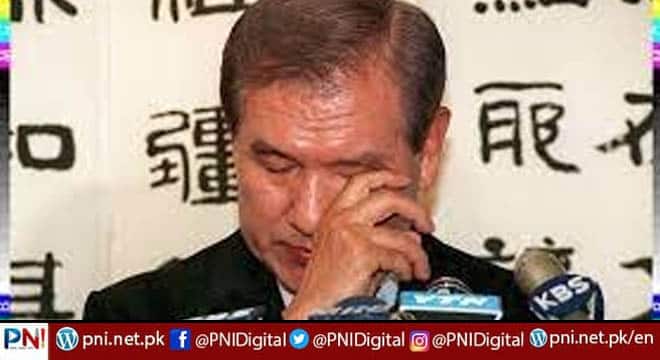Seoul, Oct 26 (AFP/APP): Former South Korean president and general Roh Tae-woo, who died on Tuesday aged 88, was instrumental in crushing the Gwangju Uprising at a cost of hundreds of lives, later won democratic elections, and was subsequently convicted of treason.
Roh’s victory in the 1987 polls — resulting from a divided opposition — crushed many democracy activists’ and liberals’ hopes, who saw his inauguration as effectively extending the existing regime.
Roh and outgoing dictator Chun Doo-hwan were close for decades, first meeting as classmates at the South’s military academy during the Korean War.
He played a vital role in Chun’s 1979 coup and subsequently enforcing his friend’s rule.
Roh never expressed remorse for the hundreds killed in Gwangju, once dismissing the toll as “nothing” compared to China’s Cultural Revolution.
But he is not as reviled as Chun — partly as he was freely elected, but also for the economic growth he oversaw and his diplomatic outreach to the former Communist bloc that saw Seoul establish relations with both Moscow and Beijing.
Born in the conservative heartland of Daegu in 1932, during the Japanese colonial period, Roh lost his father to a train accident at seven but excelled academically and entered an elite high school.
He rose through the military ranks and was a battalion commander in Vietnam, where South Korea was Saigon’s second-largest foreign troop provider after the US.
His death Tuesday came 42 years to the day after South Korean dictator Park Chung-hee was assassinated by his own spy chief in 1979.
Roh was a key conspirator when Chun, then the domestic security chief, seized power in the resulting vacuum.
Martial law was declared soon after and Roh was appointed to the cabinet, cementing Chun’s trust with the government’s brutal 1980 crackdown on pro-democracy demonstrators in Gwangju.
Around 200 were left dead or missing according to official figures, but activists say the toll may have been three times as many.
The episode is a symbol of the struggle for democracy in South Korea, and underlies political divisions to this day.
But Roh reportedly told his high school reunion in 1995: “Tens of millions of the Chinese suffered and shed blood during the Cultural Revolution. In comparison, the Gwangju incident is nothing.”
Seven years after Gwangju, Chun agreed to step down in the face mass protests demanding democracy.
The ruling party nominated Roh, and while he only secured 36.6 percent support it was enough to make him president with the opposition split between Kim Young-sam and Kim Dae-jung — both of whom were elected subsequently.
In office, Roh presided over the 1988 Seoul Summer Olympics and forged diplomatic ties with the Communist bloc, long aligned with Pyongyang.
Roh’s presidential successor, former democracy activist Kim Young-sam, was determined to bring him and Chun to justice.
They were put on trial in a cathartic process for the South as it confronted the dictatorship’s legacy, with the two former leaders pictured in prison uniform and holding hands in court.
Roh rejected the court’s authority to try him, saying in his final statement: “While history could be subject to review, it can neither be erased nor rewritten for it exists as it is.
“It also cannot be subject to judgement” in court.
The coup plotters, he insisted, “did our best” for the country following Park Chung-hee’s assassination.
Both men were convicted of treason over the coup and the Gwangju Uprising, corruption and other offences.
Roh was sentenced to 22.5 years jail while Chun was condemned to death, but both were given presidential pardons and released the following year.
In 2002 Roh was diagnosed with prostate cancer and withdrew from public view, with no details of his condition released until his death at Seoul National University Hospital.
But in recent years his eldest son Roh Jae-heon made repeated visits to Gwangju to apologise on his father’s behalf.
“My father used to tell us that we must correct the faults of history,” he was quoted as telling victims’ families in December 2020.
“As his oldest son I’d like to ask the people of Gwangju for forgiveness.”
Follow the PNI Facebook page for the latest news and updates.









